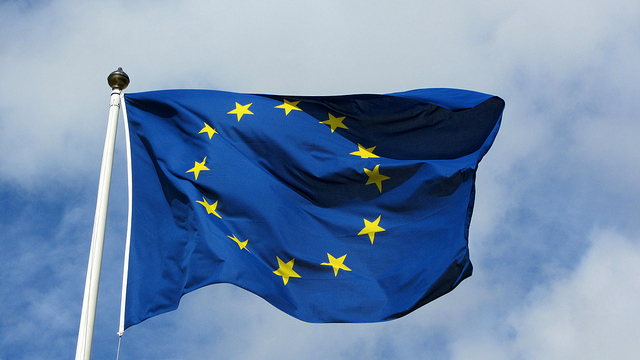The ramifications of a ‘No’ victory in the upcoming referendum on Britain’s membership of the European Union could spark political and economic change across the rest of the EU, destabilising the whole European project – this is one of the conclusions of a referendum Policy Brief report released today [Thursday 2 June] by the University Institute for Policy Research (IPR).
Ahead of the 23 June referendum, the IPR Policy Brief brings together contributions from leading experts on national and international policy based at the University. Looking at the issues surrounding Britain’s membership, it addresses both national policy challenges of devolution, migration, the economy and security, alongside the broader political issues and its impact for other EU member states.
Ramifications around the EU
Contributions focussing on France and Italy suggest that a vote for Brexit would act as a catalyst for separate referenda on membership. According to recent polling, 53% of French respondents wanted their country to hold its own referendum on EU membership, while only 45% suggested they would vote to remain. In Italy, Matteo Renzi has already signalled that a referendum on constitutional reform will be held later in the year in an effort to improve direct democracy; if Britain votes to leave then calls for another more substantial referendum on EU membership are likely to intensify.
For other EU member states, there are wider problems that could persist even in the event of a vote to remain. Two chapters of the brief consider the so-called ‘special status’ David Cameron negotiated for Britain in February and the inherent challenges this presents, in particular for Spain and Germany.
In largely europhile Spain, the brief highlights that the deal Cameron reached to cap welfare on migrant workers could set a ‘terrible legal and political precedent’, renewing calls for wider reform. Whatever the outcome, pressure is also likely to mount on Germany.
Economic reverberations
Although there are currently nine members of the EU who do not use the euro, the two chapters on economics suggest that the tensions at the heart of the EU between the single market and single currency are most severe in the UK. In his analysis of Brexit’s effect on the City of London, Economics Professor Chris Martin posits that while the economic future in either scenario is uncertain, the UK would face an uphill struggle in negotiating its way back to business as usual after leaving the EU.
If the UK remains within the EU, however, unresolved tensions between the requirements for a single market and the need for stability of the financial institutions based in the Eurozone are likely to create substantial difficulties. Overall, the brief warns, the outlook for the City of London would become much bleaker were the UK to vote to leave the EU at the end of June.
Skewed issue of migration
On the issue of freedom of movement, contributors dissect how the arguments put forward have skewed public perceptions of the thorny topic of immigration – a debate which, Senior Lecturer Dr Emma Carmel suggests, has been hijacked for political ends.
In his contribution, Senior Lecturer Dr Aurelien Mondon highlights the telling results of a recent Eurobarometer survey. When asked ‘what do you think are the two most important issues facing the UK at the moment’, 35% of respondents rated ‘immigration’ as the most important issue – the most popular choice overall. Yet when asked ‘what are the most important issues facing you personally’, immigration came out last – behind rising cost of living, unemployment, health and social security and pensions.
IPR Director Professor Nick Pearce explained: “This collection of pieces by academics at the University of Bath gives a wider view of Britain’s referendum. It is not a pamphlet that instructs its readers how to vote, but one that can be read by people wanting to inform their judgement.”
The 64-page report, which will be officially launched as part of an EU debate organised at the University of Bath this evening, also contains chapters with detailed explorations of the debate as it has unfolded in Northern Ireland and Wales, its implications for national security, and the likely role women will play in deciding the outcome.
To access a copy see http://www.bath.ac.uk/ipr/policy-briefs/eu-referendum-debate.html .

